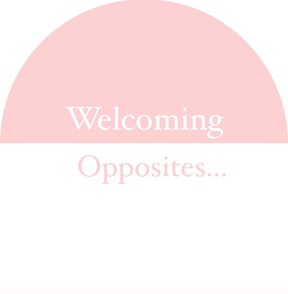I used to be a prolific reader. I still read regularly, but not nearly as much as I used to. It’s too easy to turn on a show on my laptop or scroll through dumb shit on my phone; I waste time that could be spent reading. I keep a library of books that I’ve read over the years. I hold onto almost everything but especially the books that really move me.
During COVID I found comfort in rereading some of those books. I’m a fast reader so sometimes I remember snippets of books I’ve read but can’t grasp the full story in my memory so rereading often yields surprises. Though I don’t remember the exact story of the books I’ve loved, there’s a feeling I remember and I want to go back and experience that feeling again.
There was one book, a novel I read close to ten years ago, that I have thought about thousands of times that I could not go back to during the peak of COVID. I knew it would be too upsetting so, though I thought about the story often, I left the book on the shelf.
The Age of Miracles by Karen Thompson Walker, is about eleven-year-old Julia and her family. They live in California in current times when a rare phenomenon strikes the planet. The Earth’s rotation inexplicably starts to slow. The book follows the course of the Earth’s slowing alongside the adolescent development of the narrator Julia.
Last week I finally felt like I could stomach The Age of Miracles again. COVID feels mildly under control. We have a functioning human as president and my daughter is in actual school. The Age of Miracles was everything I remembered. The story filled my brain for days. I thought about it all the time and I could see parallels in the world we live in now — rising temperatures, fires, and the extinction of certain flora and fauna. For me, the book was then, and is now, viscerally relatable.
The Age of Miracles compels me in the same way the 2008 Disney movie Wall-E did. I recently rewatched that film and loved it as much as I had the first time.
I wonder why certain topics stick in our brains and others move through like water through a sieve. Both Wall-E and The Age of Miracles are about the utter collapse of our environment, the total devastation of our planet. I wonder if these stories are so stuck in my mind because they hold a deep-rooted truth about the world or because the topic is the one that scares me the most.
When I read about Julia persevering in a planet ruled by days of cold darkness followed by days of sun that’s become dangerous and radioactive, I take a pause to grieve for my daughter’s future; I pray that she dies before we get to that point. I am terrified of her living in a world like that.
But in The Age of Miracles, Julia and millions of other people on the planet adapt. They find ways to survive while understanding very clearly that their time on Earth is limited, that they will probably witness the demise of their planet and of themselves. Despite this imminent destruction, they have an enduring hope that keeps them going day after day.
In Wall-E, the humans abandon the Earth and wait out planetary destruction somewhere in Outerspace on a giant spaceship. After signs of life on the formerly dead planet become evident, the Earthlings come back and try to rebuild what was destroyed. Starting from nothing they trust that they can recreate a habitable world.
In both the book and the movie there is a sense of utter despair and surprising hope that totally pulls me in. It is not unlike the feeling of melancholy. The feeling of welcoming both the tragedy and the possibility, of existing in that opposite land is strangely comforting.
I know we’re not the first generation to fear the future. Humans from the beginning of time have faced peril— vicious predators, famine, world war, nuclear arms. And they have carried on. Their perseverance has gotten us to this point and now we will keep going, enduring, and hoping.
I will read The Age of Miracles again and I will watch Wall-E again. As hard as it is to recognize how close we are to the planetary destruction of those stories, I take great comfort from the undeniable presence of hope that runs through them.




.jpg)


